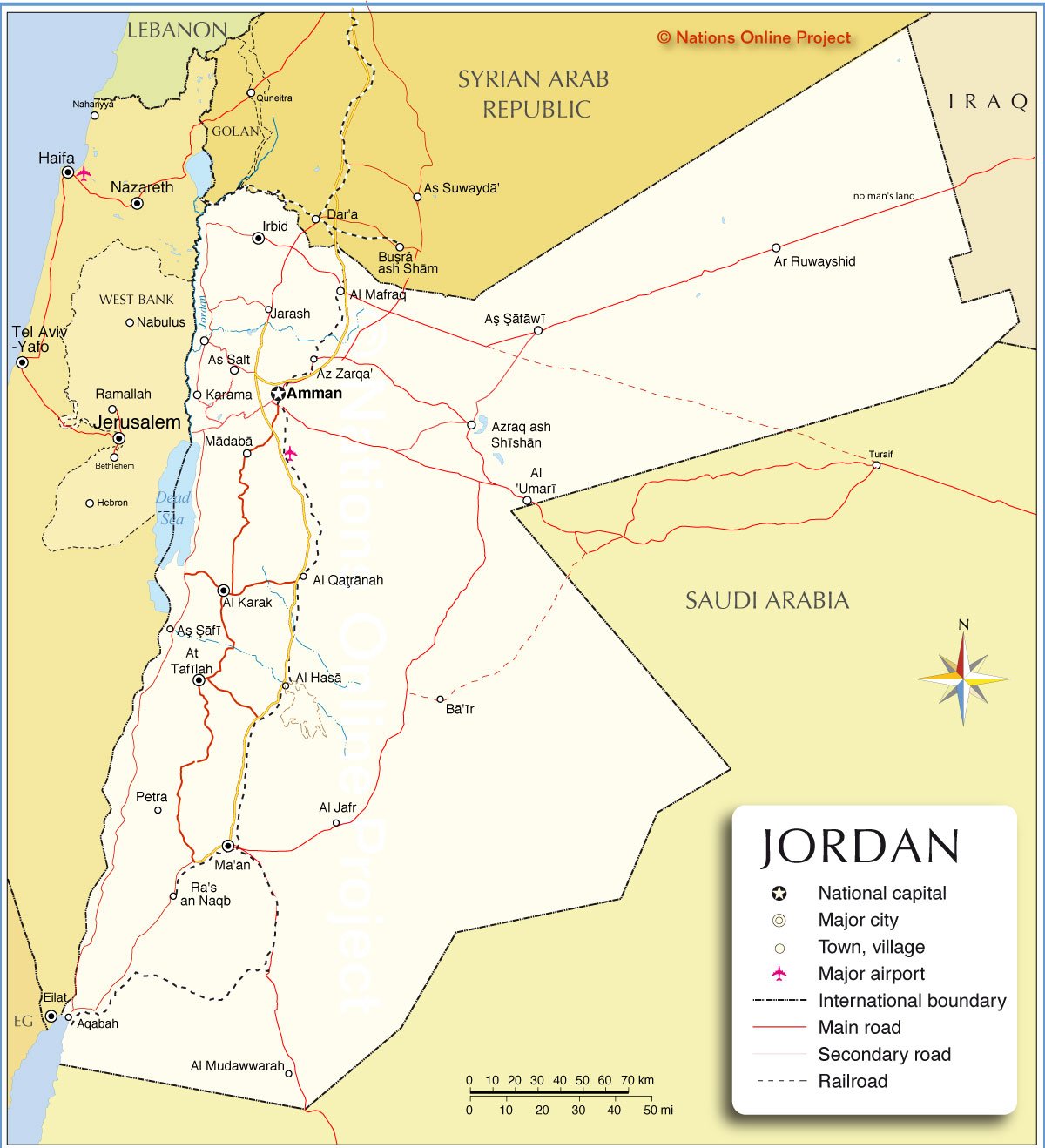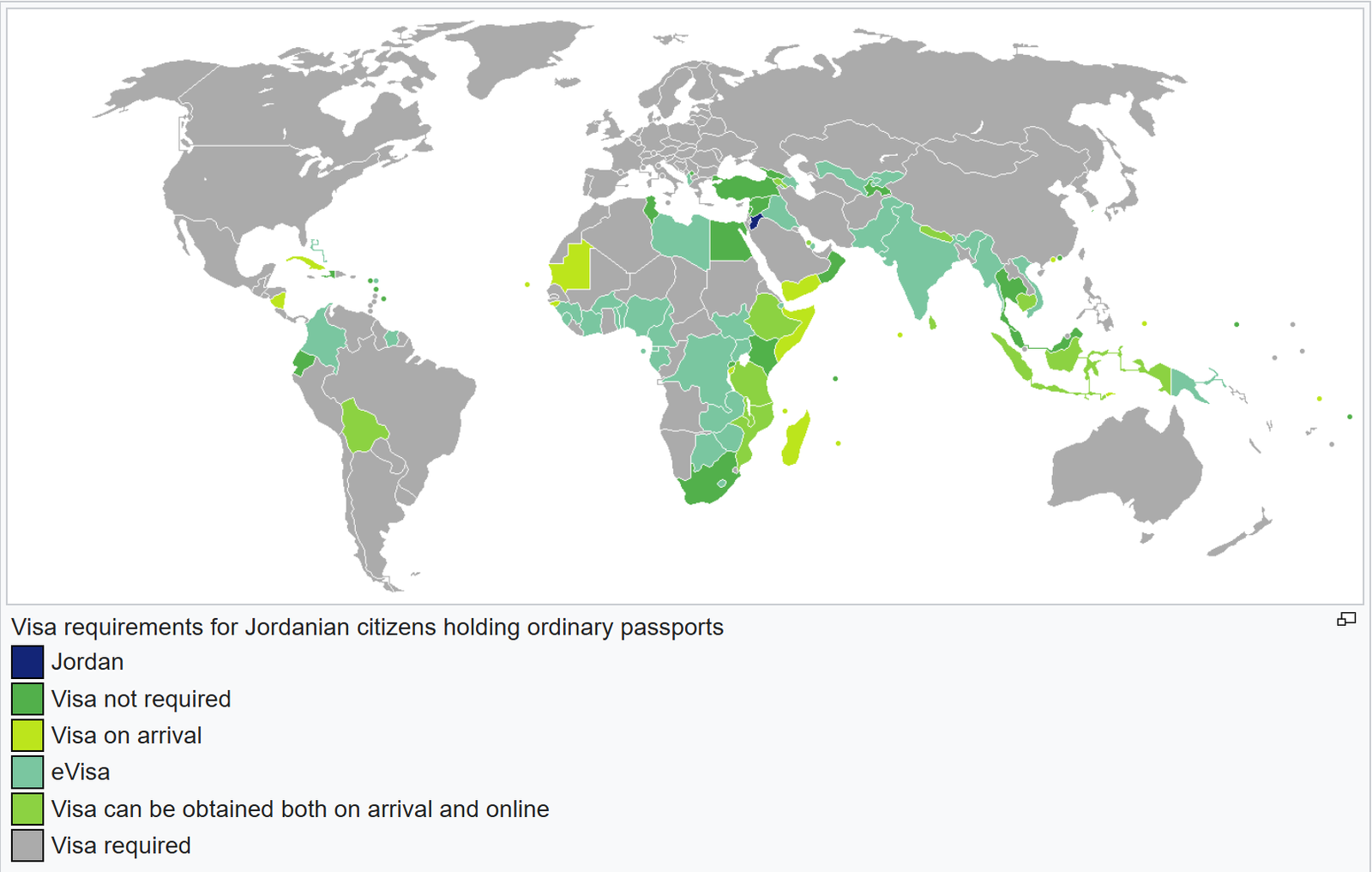How To Get Residency In Jordan: A Comprehensive Guide
Capital: Amman
Population: 11,484,805 (84th)
Ethic Group: 95% Arab, 3% Circassian, Chechen, 2% Armenian and others
Area: 89,342 km2 (110th)
Offical Language: Arabic
Currency: Jordanian dinar (As of May 29, 20205, 1 JOD = 1.41 USD)
GDP per Captial (PPP): $12,809 (2023, 112nd)
Capital: Amman
Population: 11,484,805 (84th)
Ethic Group: 95% Arab, 3% Circassian, Chechen, 2% Armenian and others
Area: 89,342 km2 (110th)
Offical Language: Arabic
Currency: Jordanian dinar (As of May 29, 20205, 1 JOD = 1.41 USD)
GDP per Captial (PPP): $12,809 (2023, 112nd)
Human Development Index: 0.754 (2023, 100th)

Country Profile:
The Hashemite Kingdom of Jordan is a Middle Eastern country located in West Asia, strategically positioned at the crossroads of three continents: Europe, Asia, and Africa. It is governed by the Hashemite royal family.
The King of Jordan holds extensive political powers but there is also a parliament consisting of an upper house and a lower house, primarily responsible for legislative work.
Jordan’s economy is mainly service-oriented, with tourism, information technology, and financial services as its main pillars. Additionally, the country has certain advantages in the mining of phosphates and potash. However, due to scarce resources, especially water shortages, Jordan faces significant challenges in economic development.
For overseas individuals without direct ties to Jordan, the most direct and effective way to immigrate is through its passport program (also known as Citizenship By Investment, CBI), which allows investors to obtain citizenship directly through investment.
Citizenship By Investement Program:
What is Citizenship By Investment Program:
Citizenship by Investment (CBI) programs, also known as the Passport Programs, are government initiatives that allow foreign nationals to obtain citizenship in a country by making a significant financial contribution or investment in that country’s economy. This process offers a legal and relatively fast route to acquiring a new nationality and passport, often within a few months, depending on the program and country.
Currently, there are ten globally stable and reputable passport programs:
- Caribbean: Saint Kitts and Nevis, Antigua and Barbuda, Grenada, Dominica, and Saint Lucia.
- Pacific: Vanuatu.
- Southeast Asia: Cambodia.
Overall, while the global Citizenship by Investment programs require significant financial investment, they offer several advantages:
1. Quick Passport Acquisition: In most CBI countries, once the investment is made, applicants can obtain a passport within 3 to 4 months, or even just a few weeks.
2. Lenient Background Checks: Although there has been increased scrutiny on background checks due to pressure from the EU and the US, compared to major countries’ green card programs, the background checks for CBI programs in smaller countries are still relatively lenient, sometimes even superficial.
3. No Residency Requirement: Almost all CBI countries have a zero-immigration-residency policy. In most cases, applicants can apply for and hold citizenship without ever having to reside in the country.
4. Broad Dependent Eligibility: Many CBI programs allow multiple generations of the primary applicant’s family, including grandparents and grandchildren, to be included regardless of age or status.
Jordan’s Citizenship By Investment Program:
Starting February 20, 2018, the Jordanian government introduced an investment program that allows foreign nationals to obtain either permanent residency or direct citizenship through qualifying investments. Initially, the minimum investment required to acquire Jordanian citizenship was set at $1.5 million.
On October 2, 2019, the government revised this program to broaden the range of eligible investment options and lowered the minimum investment threshold to $750,000. This updated framework remains in effect today.
According to the 2019 legislation:
Foreign investors who purchase property in Jordan valued at no less than $200,000 are eligible to apply for permanent residency. Permanent residents must maintain ownership of the property to renew their residency visa every five years.
For those seeking citizenship by investment, there are three main economic pathways:
1. Bank Deposit Option: Make a zero-interest deposit of $1 million with the Central Bank of Jordan (CBJ), to be maintained for a minimum of three years.
2. Government Bonds Option: Purchase government bonds from a CBJ-approved list totaling at least $1.5 million, held for at least six years.
3. Business Investment Option: This option offers two alternatives:
Invest $1 million in a company within the Amman governorate, creating at least 20 full-time jobs.
Invest $750,000 in any government project outside Amman, generating at least 10 full-time jobs.
The Jordanian government caps the citizenship-by-investment program at 500 applicants annually, ensuring exclusivity and controlled growth.
Updated News:
Jordan’s citizenship by investment program has gained popularity primarily within the Arab world. According to data from the Jordan Investment Commission (JIC), between the program’s launch in 2018 and 2021, approximately 206 Arab investors successfully obtained Jordanian citizenship, with another 30 applications currently under review.
In a statement released at the end of December 2020, the JIC highlighted that foreign investors had injected at least $122.1 million in overseas capital into Jordan, generating 7,326 local jobs and providing vital support to the country’s economic development.
Regarding investment preferences, JIC Acting Chairman Fredon Hartoqa noted that 200 investors opted to invest in existing economic projects, five secured citizenship through bank deposits and bond purchases, and one investor obtained citizenship by acquiring local stocks.
Foreign investors granted Jordanian passports come from a diverse range of countries, including Syria, Iraq, Palestine, Finland, Canada, Lebanon, Yemen, the United States, Pakistan, India, and Saint Kitts.
Application Process:
The application process for Jordan’s citizenship by investment program generally involves the following key steps:
1. Submit Application: Prospective investors should begin by completing an intention application form, submitting all required documents, paying visa fee, and formally applying to the Jordanian government for citizenship by investment.
Required documents include:
-
Identity documents: Valid passports for the main applicant and dependents, passport-sized photos, birth certificates, marriage certificates, and other documents verifying family relationships.
-
Proof of financial capacity: Bank statements, proof of income sources, and net worth documentation to demonstrate the applicant’s ability to meet the investment requirements and support their family’s living expenses in Jordan.
-
Police clearance certificates: Criminal background checks issued by law enforcement authorities from all countries where the adult applicants and dependents have resided.
All documents issued outside Jordan must be notarized, and any documents not in Arabic must be officially translated into Arabic.
2. Background Check: Once your application is submitted, the Jordanian government conducts a thorough background investigation into the applicant’s personal and financial information to ensure eligibility and compliance with program criteria.
3. Complete Investment: After successfully passing the background check, applicant should choose an investment option and complete the required investment. Proof of completed investment should then be submitted to the Jordan Investment Commission.
Following these steps, the applicant and their family await approval and the issuance of Jordanian passports. The entire citizenship by investment application process typically takes between three to six months.
Dependents:
Under Jordan’s citizenship by investment program, the main applicant’s spouse, unmarried children under 18, unmarried or divorced children over 18, and financially dependent parents can obtain Jordanian citizenship as dependents.
Minimum Residence Requirement:
Applicants opting for the bank deposit route in Jordan’s citizenship by investment program must enter Jordan at least one month prior to being granted citizenship.
However, the Jordanian passport program does not impose any minimum residency requirements, allowing passport holders to maintain their citizenship without ever entering Jordan.
Passport Power:
Jordanian recognizes dual citizenship, its passport ranked 76th globally. Citizens can travel freely (visa-free or obtain a visa on arrival) to 66 countries and regions globally as of May 29, 2025.

Useful Links:
Jordan Ministry of Investment: https://www.jic.gov.jo/en/home-new/